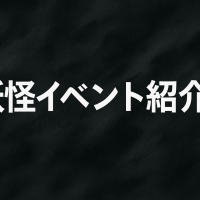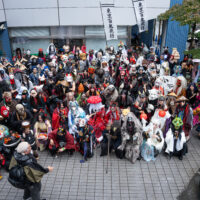
The day when Japanese people disappear from hot spring resorts: Overtourism and the crisis of local culture

Japanese people are disappearing from hot spring resorts
When did you start to feel that Japanese hot spring resorts were no longer places for Japanese people?
Our company (Yokai-ya) has been holding local events with a yokai theme, interacting with local people and listening to the opinions of tourists. What we have come to realize is that "local culture is quietly fading away."
Hot spring resorts used to be a place where locals could come and stay with their families, but now accommodation costs have risen dramatically. For example, the average price for a business hotel in Tokyo was about 6,340 yen in January 2021, but by December 2023 it had jumped to about 15,400 yen, a roughly 2.5-fold increase. This kind of sudden price increase is also occurring in hot spring resorts.
What kind of tourist destinations are there that Japanese people "cannot stay at"?
Unclear price hikes and struggling regions
During Golden Week in 2024,Approximately 22.8 million domestic tourists visited Japan (up 0.9% from the previous year), but reservations for accommodations in local hot spring resorts were sluggish and the number of day-trippers also decreased.It has been reported that this is the case.
What's even more serious is that it's becoming difficult to even casually enjoy a day trip to the hot springs. In hot spring resorts where the water flows directly from the source, prices are rising one after another, even though the services offered remain unchanged. Fuel costs have not risen significantly in recent times, so the direct impact is limited. There has also been no significant increase in labor costs, and according to statistics from the Ministry of Health, Labor and Welfare, the average wage in the accommodation and food service industries remains below the industry average. Despite this, the current situation in which only prices are rising has local residents wondering if they're just jumping on the bandwagon.
With rising prices and tax hikes, the income of Japanese people is steadily decreasing. Local residents and domestic tourists, who should be important to tourist destinations, are gradually staying away from them.
The dangers of relying on inbound tourism
Further complicating the issue is the reality of management. An increasing number of facilities claim to be inbound oriented, but in reality they do not have a proper system in place to serve customers, or are sold to foreign capital and run without regard for the wishes of the local community.
In these places, culture and customs are gradually being lost, and the land will become nothing more than a "tourist product." Once inbound demand cools off, a "hollowing out of culture" may be what awaits us in the future.
The meaning behind the Yokai events that Yokaiya has been holding
Our company has been working to convey local stories and the original landscape of Japan through the cultural resource of yokai. Yokai are not just "scary creatures," but are a reflection of people's views of the land that were born from their lives.
What Japanese tourist destinations should truly value is not novelty or luxury, but the culture and spirit that are rooted in them. I think that only when Japanese people themselves recognize the value of these things and approach them with pride can the "real Japan" be conveyed to people overseas.
If the community doesn't protect it, no one else will.
Without the awareness that local people should protect their town and culture, no matter how wonderful the culture is, it will eventually be lost. No matter how hard outsiders try...
Our activities may be a small endeavor. However, through the stories of monsters, we can pick up the voices of the land and give shape to the pride and hopes of the people who live there. We believe that such efforts will be a step towards changing the future of tourist destinations.
Tourism is not about selling culture, but about protecting and sharing culture together. From "tourism that sells" to "culture that we want to preserve." Isn't it time to go back to the origin?








No comments yet.